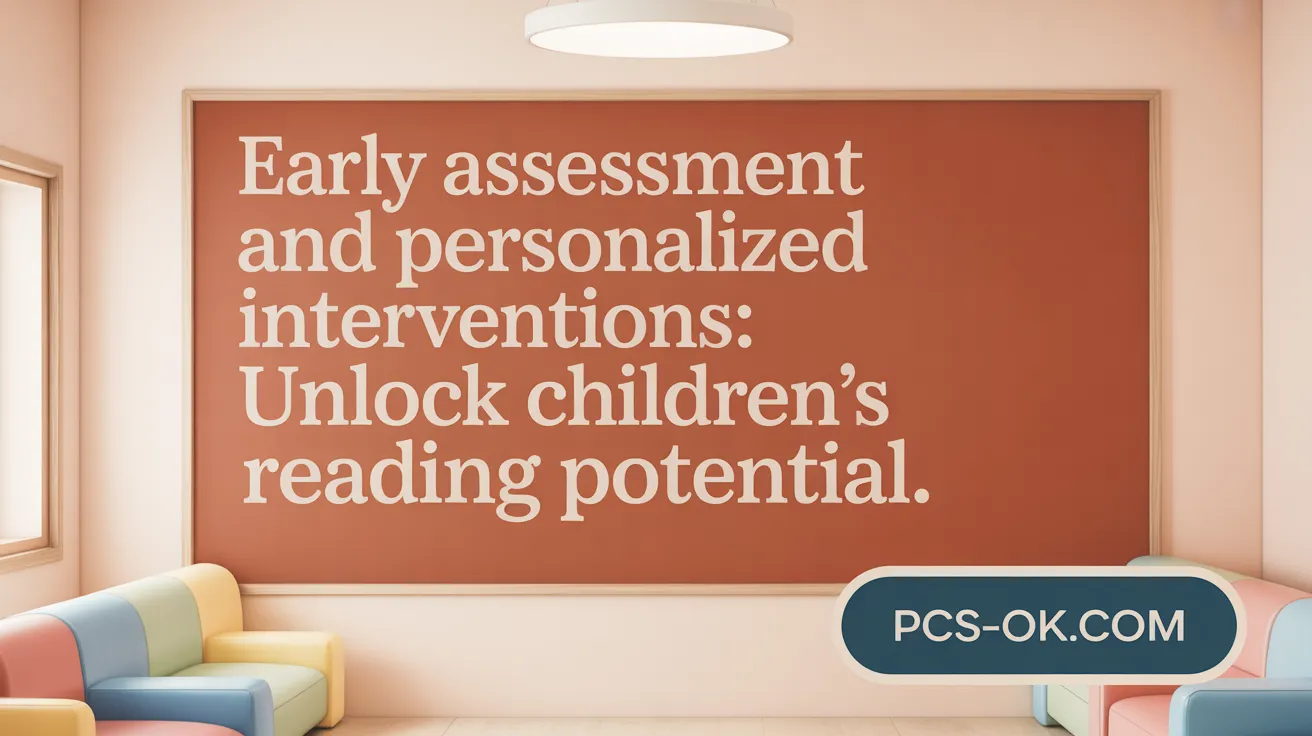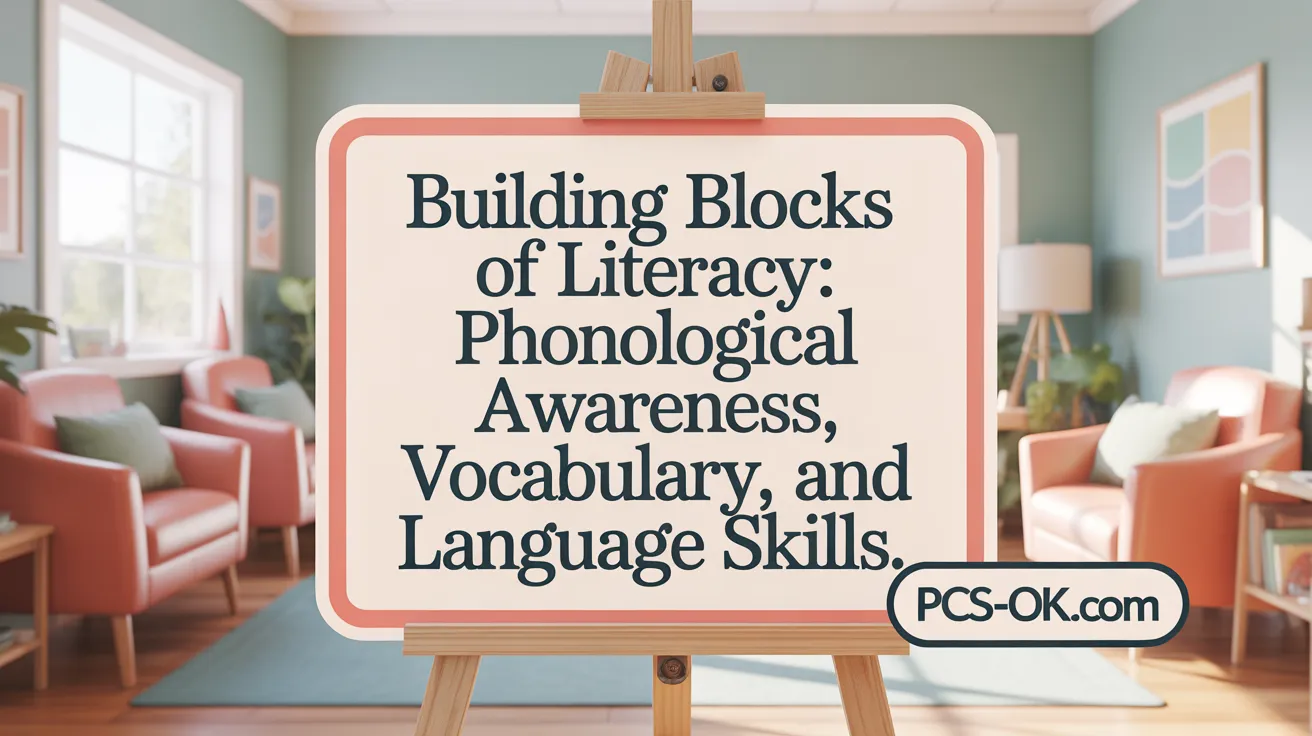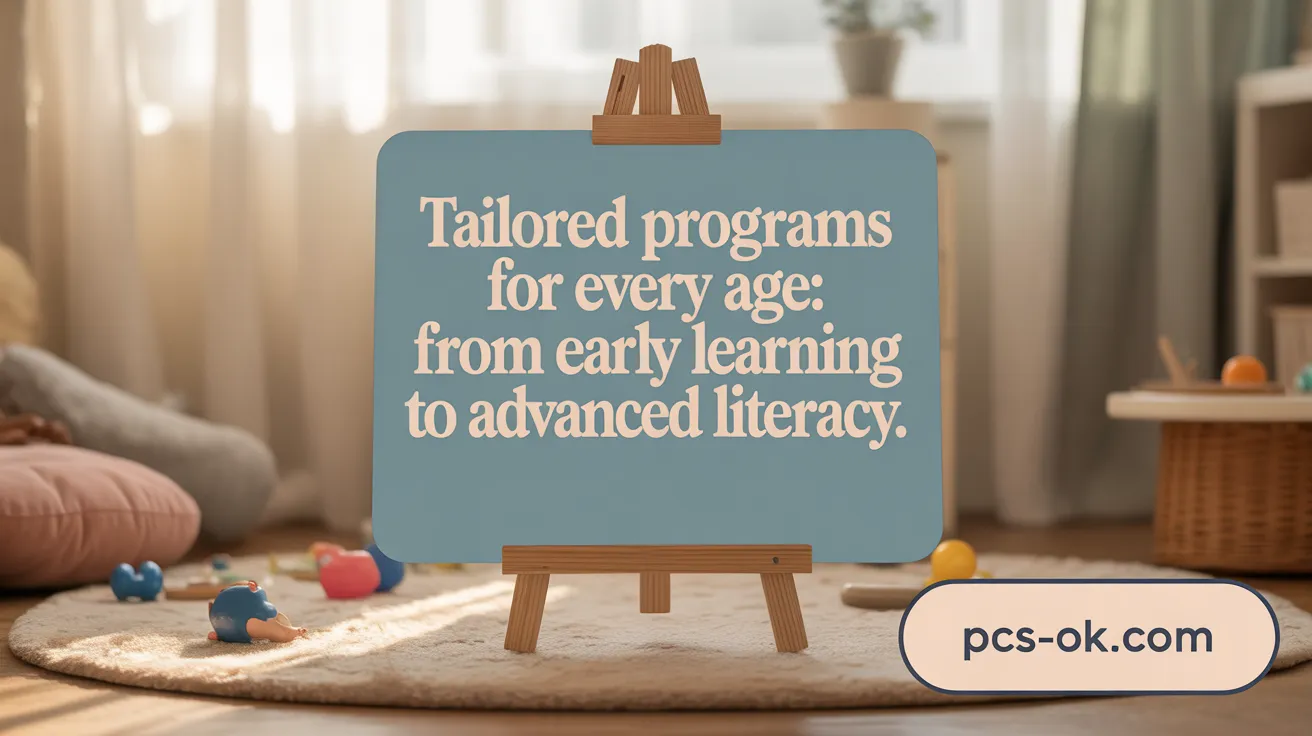How Speech Pathologists Support Literacy Development
Bridging Communication and Literacy Success
Literacy is a fundamental skill that shapes educational achievement and lifelong learning. Speech-language pathologists (SLPs) play a critical role in supporting literacy development by leveraging their expertise in language disorders and communication processes. This article explores how SLPs contribute to enhancing reading and writing skills through targeted interventions, collaboration with educators and families, and early identification of at-risk children. By understanding the multifaceted roles and evidence-based strategies employed by speech pathologists, we gain a deeper appreciation for their impact on literacy outcomes across diverse educational settings.
The Integral Role of Speech Pathologists in Literacy Development

What are the roles and responsibilities of speech pathologists in literacy support?
Speech-language pathologists (SLPs) are essential in helping children develop strong reading and writing abilities. They assess children’s language skills to identify those at risk of literacy difficulties early on. Based on their evaluations, SLPs create personalized intervention plans targeting key components like phonological awareness, vocabulary, syntax, and pragmatics—core elements for successful literacy.
SLPs provide targeted activities such as sound segmentation, vocabulary building, and story analysis to strengthen language skills tied to reading and writing. They also work on foundational skills like letter recognition, spelling, and grammar, which are vital for literacy learning.
Beyond direct intervention, SLPs collaborate with teachers, parents, and other specialists. They embed literacy strategies into classroom activities, enhance communication practices, and support the development of language-rich learning environments.
Their responsibilities extend across all stages of literacy, from emergent skills to advanced reading comprehension and written expression. They also advocate for early and ongoing support, understanding that timely intervention can prevent long-term academic challenges and foster lifelong language and literacy skills.
Foundations of Literacy: Language Skills Addressed by Speech Pathologists

How do speech pathologists support literacy development?
Speech pathologists play a crucial role in fostering literacy by focusing on essential language skills such as phonological awareness, vocabulary, and sentence structure. They assess children’s language abilities to identify areas needing support and implement evidence-based interventions. These include phonological awareness training like sound segmentation and blending, which improves decoding skills. SLPs also engage children in storybook reading, vocabulary-building activities, and play-based exercises to enhance expressive and receptive language.
Early intervention is a cornerstone of their work, as addressing speech and language hurdles before they become ingrained can prevent future reading and writing difficulties. Moreover, SLPs collaborate closely with educators and families to create environments rich in language and literacy opportunities. They teach strategies for classroom use and home practice, helping children develop confidence and competence in reading and writing. Overall, their comprehensive approach ensures students acquire the foundational skills needed for lifelong literacy success.
What is the relationship between speech therapy and literacy skills?
Speech therapy and literacy are interconnected because spoken language forms the basis of reading and writing abilities. SLPs enhance literacy by targeting skills such as phonological awareness—which involves recognizing and manipulating sounds—along with vocabulary development, grammar, and narrative organization. Their expertise enables them to diagnose and treat disorders that may hinder literacy, such as speech sound disorders and language impairments.
Through targeted activities like rhyming, sound exercises, and storytelling, speech therapists help children recognize sounds, form sentences, and expand their vocabulary. This foundation is vital for decoding words, understanding texts, and expressing ideas clearly in writing. Collaboration with teachers ensures that interventions are tailored to individual needs, supporting early prevention and ongoing development. Thus, speech therapy is integral to building comprehensive literacy skills that allow children to read, write, and communicate effectively.
Techniques and Interventions Used by SLPs to Enhance Reading and Writing

What strategies and techniques do speech pathologists use to promote literacy?
Speech-language pathologists apply a wide range of methods to bolster literacy skills in students. A cornerstone of their approach involves phonemic awareness exercises, such as sound segmentation, blending, and rhyming activities, which are essential for decoding written language. These exercises help children recognize sounds and improve their ability to decode words during reading.
In addition to phonemic tasks, SLPs incorporate vocabulary development strategies to expand a child’s word understanding and usage. Storytelling, shared reading, and narrative activities are employed to enhance comprehension and expressive language. These interactions promote a deeper grasp of story elements and foster language skills vital for literacy.
SLPs also use multisensory and play-based approaches. Activities like letter hunts, Sight Word Twister, and physical objects help children connect sounds, letters, and meanings in engaging ways. Creating a language-rich environment through these techniques supports literacy at all stages, from emergent reading to advanced comprehension.
Targeted interventions are tailored to individual needs. For example, phonological awareness training helps children understand sound structures, while print concepts and sight word practice aim to build automatic recognition and fluency. Early assessment and speech therapy ensure children receive appropriate support before difficulties escalate.
Furthermore, collaboration with educators and families ensures interventions are consistent and effective, addressing foundational skills that underpin successful reading and writing.
Supporting Literacy Across Developmental Stages: Children and Adolescents

What are the stages of literacy development?
Literacy development unfolds through several stages, each requiring tailored support. These stages include emergent literacy, where children begin to recognize print and develop oral language skills; the alphabetic stage, focusing on phonemic awareness and letter-sound relationships; the word and pattern stage, where children learn to decode unfamiliar words and recognize common spelling patterns. The intermediate stage involves building fluency and comprehension, while the advanced stage emphasizes analytical reading and writing skills.
Why is early intervention important?
Early intervention by speech-language pathologists (SLPs) is crucial because it helps identify children at risk of literacy difficulties before they hinder academic success. By targeting foundational skills like phonological awareness, vocabulary, and language comprehension early on, SLPs can prevent long-term reading and writing challenges. For example, addressing speech sound disorders or language delays during preschool years can establish a strong literacy foundation, reducing the likelihood of future struggles.
How are literacy programs customized for children and adolescents?
SLPs develop individualized programs that meet each child’s unique needs, considering their developmental stage and specific challenges. These programs often incorporate activities like rhyme games, sound segmentation exercises, and vocabulary-building tasks. For adolescents, interventions may include more complex comprehension strategies, narrative development, and academic writing support. Additionally, multi-sensory teaching methods, visual aids, and print-rich environments are used to reinforce learning and foster engagement.
How do collaborative approaches involving families and educators enhance literacy?
Effective literacy support involves close collaboration with parents, teachers, and other professionals. SLPs work with educators to embed literacy strategies in classroom routines, such as visual supports and structured literacy activities. They also train parents in activities like shared reading and language-rich interactions at home, promoting consistent reinforcement across settings. This teamwork ensures interventions are cohesive, targeted, and sustainable, leading to better literacy outcomes.
What approaches are used by speech pathologists to support literacy in children and adolescents?
Speech pathologists support literacy through evidence-based, explicit instruction tailored to individual needs. They utilize activities like sound games, sight word practice, shared reading, and spelling exercises to strengthen oral language, decoding, and reading fluency. Addressing speech and language challenges such as phonological processing deficits or vocabulary gaps is integral to their approach. Early, targeted intervention is vital, as SLPs design programs that prevent future reading and writing difficulties, especially for children with speech sound disorders or at risk of dyslexia.
SLPs also collaborate with educators and families to incorporate visual supports, print-rich environments, and classroom strategies that promote literacy. Their comprehensive approach integrates spoken and written language development, ensuring children and adolescents develop the skills necessary for academic success and lifelong literacy.
| Developmental Stage | Focus Areas | Supporting Strategies |
|---|---|---|
| Emergent Literacy | Print awareness, oral language | Shared reading, language games, environmental print |
| Alphabetic Stage | Phonemic awareness, decoding | Sound segmentation, letter-sound exercises |
| Word and Pattern Stage | Decoding, sight words | Pattern recognition, spelling activities |
| Intermediate | Fluency, comprehension | Story retelling, questioning strategies |
| Advanced | Critical reading, academic writing | Analyzing texts, complex writing tasks |
By addressing each stage with targeted strategies, SLPs ensure continuous literacy growth, preparing children and adolescents for academic achievement and everyday communication.
Speech Pathologists’ Contribution to Literacy in Educational Settings
How do speech-language pathologists contribute to literacy development in educational settings?
Speech-language pathologists (SLPs) play a vital role in supporting literacy among students by leveraging their specialized knowledge of communication processes and language systems. They assess children’s speech and language skills to identify those at risk of reading and writing difficulties early on. Using their expertise, SLPs develop tailored interventions that focus on phonological awareness, vocabulary expansion, reading comprehension, and narrative skills.
SLPs employ activities such as sound segmentation, blending exercises, and storytelling to strengthen the foundational skills needed for decoding and encoding. Their training enables them to recognize and remediate issues with phonology, morphology, syntax, semantics, and pragmatics that can hinder literacy development.
A core aspect of their work involves collaborating closely with teachers and families to create individualized literacy goals aligned with each child’s developmental level. They support classroom instruction through teaching strategies like visual supports, explicit instruction, and structured language activities.
SLPs also integrate literacy activities into play-based therapy, storybook reading, and language-rich environments, fostering emergent literacy skills. These efforts are especially crucial for children with speech sound disorders or language impairments, who are at higher risk for reading and writing challenges.
Furthermore, SLPs contribute to teacher training by providing resources and strategies for integrating literacy development into everyday classroom practice. Their involvement helps create supportive learning environments that promote reading and writing success for all students.
Early intervention, made possible through systematic assessment and targeted strategies by SLPs, can significantly improve literacy outcomes. Addressing speech and language needs before they develop into long-term difficulties ensures children build a strong foundation for lifelong literacy achievement.
| Main Focus Areas | Strategies/Activities | Who They Support |
|---|---|---|
| Phonological awareness | Sound segmentation, blending games | All students, especially those with speech sound issues |
| Vocabulary development | Storytelling, word games | Students needing vocabulary growth |
| Reading comprehension | Questioning, summarizing activities | Students struggling with understanding texts |
| Narrative skills | Story crafting, sequencing exercises | Developing writers |
| Teacher and family collaboration | Training, resource sharing | Educators and parents |
In sum, SLPs contribute substantially to literacy development by diagnosing difficulties early, guiding targeted interventions, and supporting educators and families. Their work ensures children acquire the communication skills necessary for confident reading and writing, laying a foundation for academic success.
The Critical Importance of Speech Therapy in Literacy Development
Why is speech therapy important in fostering various aspects of literacy?
Speech therapy plays a vital role in developing literacy skills by strengthening the core language components necessary for reading and writing. Through targeted activities, speech-language pathologists enhance foundational abilities such as phonological awareness—understanding and manipulating sounds in words—and vocabulary development. These skills are essential for decoding written language and expressing ideas clearly.
SLPs work closely with teachers and families, providing strategies like sound segmentation games, vocabulary-building exercises, and shared reading activities, which improve both spoken and written language. Such interventions foster early language acquisition, laying a strong groundwork to prevent future literacy difficulties. Addressing speech sound disorders, syntax issues, and semantics early on helps children navigate the complex process of learning to read and write effectively.
The expertise of SLPs ensures that children develop not only their oral communication but also the cognitive skills tied to literacy success. Their contributions are crucial in equipping students with the linguistic tools needed for academic achievement and confidence, ultimately promoting lifelong literacy proficiency.
How does early intervention prevent literacy challenges?
Early intervention by SLPs is a proven approach to address speech and language difficulties before they translate into more significant literacy problems. By screening and assessing young children’s language skills, SLPs can identify those at risk of reading and writing challenges.
Interventions such as phonemic awareness training, vocabulary expansion, and narrative skill development start early, fostering skills that support subsequent literacy phases. These strategies help children grasp alphabetic principles, improve decoding skills, and build comprehension abilities, which are critical for academic success.
In addition, early support helps children develop positive attitudes towards reading and writing, reduces frustration, and boosts academic confidence. This proactive approach makes a significant difference in long-term literacy outcomes.
How do SLPs address speech sound and language disorders?
SLPs utilize specialized assessments to diagnose speech sound disorders, expressive and receptive language issues, and pragmatic language challenges. They develop individualized interventions targeting specific deficits—such as sound segmentation, articulation, vocabulary, and syntax—that directly influence a child’s ability to decode words, understand texts, and express written ideas.
Activities like rhyming, sound blending, storytelling, and structured language exercises are used to enhance phonological processing and language comprehension. When these foundational skills improve, children demonstrate better reading fluency and writing clarity.
Furthermore, SLPs often collaborate with educators to integrate these strategies into classroom instruction, supporting inclusive learning environments where all students can achieve high literacy levels.
What is the impact on academic achievement and confidence?
Strengthening language and literacy skills through speech therapy directly boosts academic performance. Children with improved phonological awareness, vocabulary, and speech clarity perform better across subjects, especially in reading, writing, and language arts.
Enhanced communication skills foster greater participation in class discussions and social interactions, increasing confidence and motivation. Conversely, addressing speech and language disorders early reduces frustration and behavioral issues related to communication difficulties.
Overall, speech therapy supports not only academic success but also helps children develop a positive self-image as capable learners. This foundation encourages continued growth and participation, ensuring they are well-prepared for future educational challenges.
Research-Backed Evidence Guiding Speech Pathology Literacy Practices
Numerous studies underscore the strong connection between oral language development and literacy achievement. Research indicates that foundational skills such as phonological awareness, vocabulary, and print knowledge are critical building blocks for reading and writing success. Speech-language pathologists (SLPs) utilize evidence-based interventions targeting these areas to support literacy in children and adolescents.
Interventions like phonemic awareness exercises, morphological instruction, and vocabulary-building activities have been proven to improve decoding, spelling, and comprehension skills. Early intervention plays a vital role; by identifying and addressing speech and language difficulties promptly, SLPs can prevent future literacy challenges that might hinder academic progress.
Theoretical frameworks such as the Simple View of Reading and Scarborough’s Reading Rope illustrate how oral language skills interact with decoding and comprehension, guiding SLPs in designing comprehensive therapy plans. Collaboration with educators and ongoing professional development further enhance the effectiveness of these practices.
Overall, a growing body of research supports embedding literacy-focused strategies into speech therapy. This integrated approach not only prevents reading difficulties but also promotes overall academic achievement, ensuring that children develop the communication skills essential for lifelong learning.
Empowering Literacy Through Speech Pathology Expertise
Speech-language pathologists are indispensable allies in literacy development, bridging the critical connection between spoken language and written communication. Their specialized knowledge, comprehensive assessment skills, and evidence-based interventions empower children and adolescents to overcome language barriers and thrive academically. By partnering with educators, families, and communities, SLPs create supportive, language-rich environments that foster confident readers and writers. Continued research and professional development will further enhance these practices, ensuring that speech pathology remains at the forefront of literacy support across diverse educational contexts. Ultimately, investing in speech therapy services is an investment in successful literacy futures for all learners.
References
- Learning About Literacy: SLPs Play Key Role in Reading, …
- Literacy Development: The Role of SLPs in Early Learning
- The Connection Between Speech Therapy and Literacy …
- Roles and Responsibilities of Speech-Language …
- An SLP’s Ultimate Guide to Literacy Intervention
- The Impact of Speech Therapy on Reading and Writing Skills
- Working with SLPs to Support Communication and Literacy
- Role of Speech-Language Pathologists in …

Nice blog.